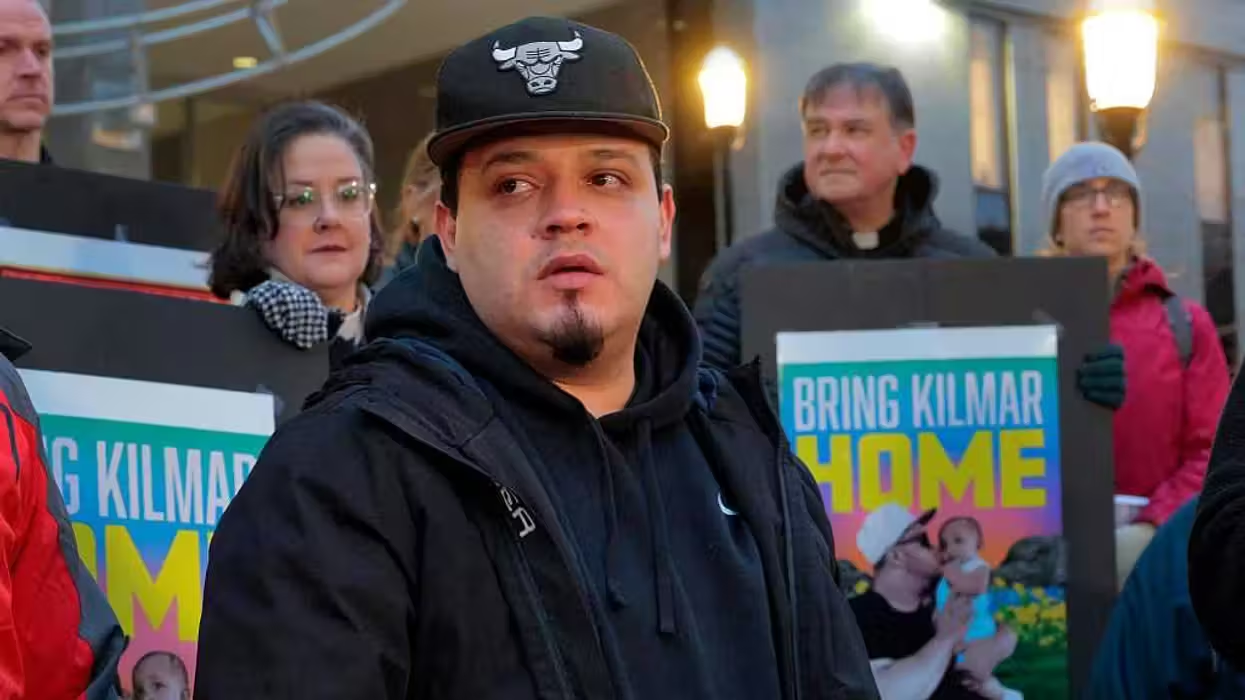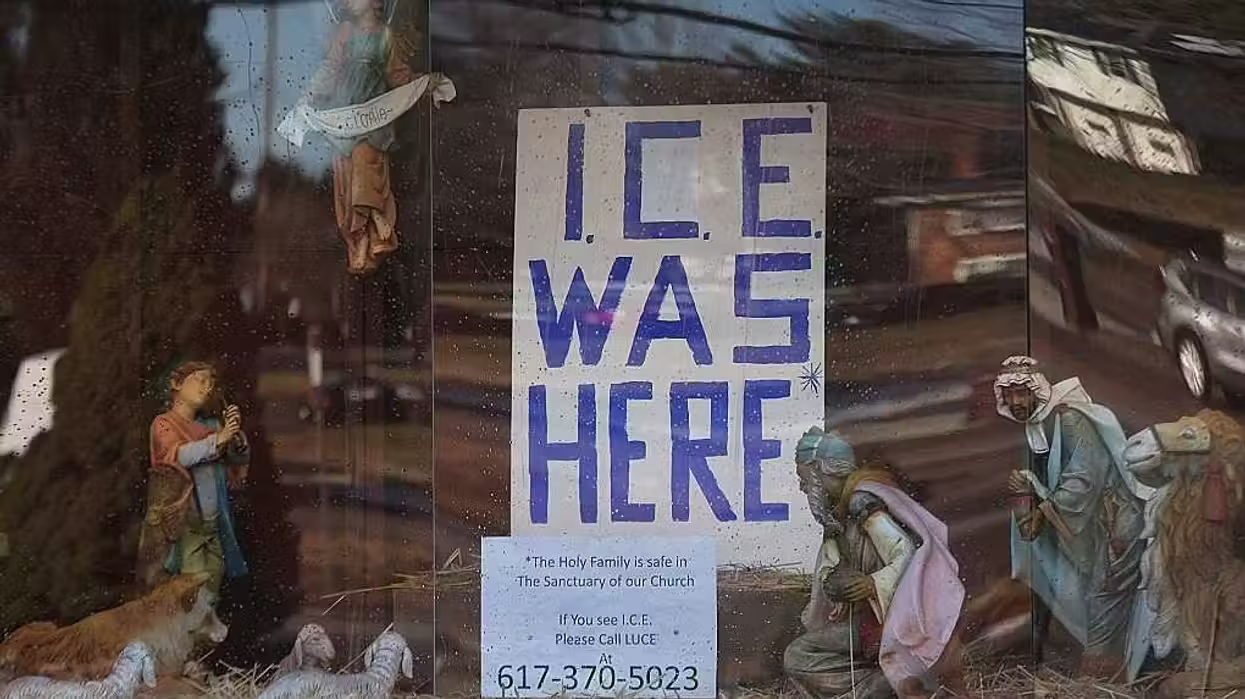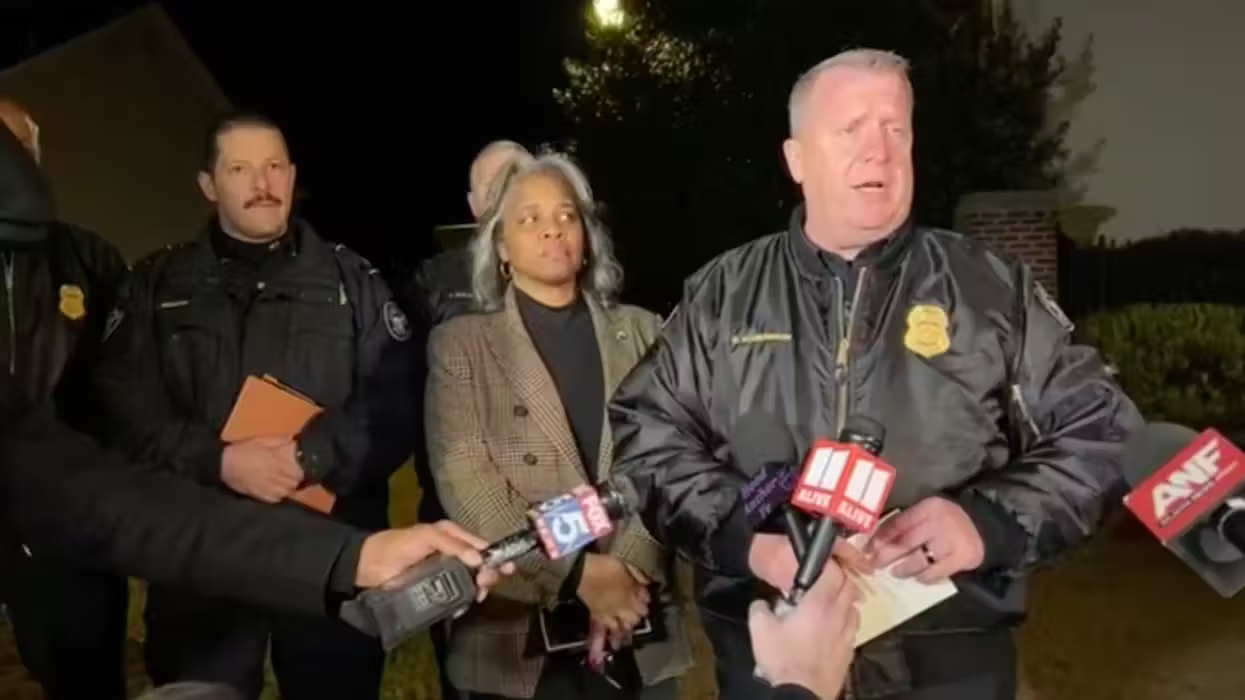
© 2025 Blaze Media LLC. All rights reserved.
How Christians are praying their way through Africa’s underreported civil war
September 12, 2018
Trying to lead souls to heaven is not an easy task to begin with; it’s even harder when those souls are located right in the middle of a civil war. That’s the challenge that Catholic Bishop Andrew Fuanya Nkea faces every single day. But as bleak as things have been, his priests and his flock have all learned the importance and the power of prayer.
In Cameroon, what began as a peaceful strike of English-speaking teachers and attorneys almost two years ago has escalated into what some worry will be the African continent’s next great civil war. However, in Bishop Nkea’s eyes, that war is already under way, and his diocese is caught right in the middle of the conflict.
Cameroon as we know it today is an amalgamation of former French and English colonies. As a result, there has been long-standing tension between the country’s francophonic majority and the English-speaking minority.
The current conflict began in October 2016, Nkea explains, when educators and lawyers of the country’s English-speaking minority started to strike over concerns about French language dominance in the country’s courts and schoolrooms.
“That is where I think we had an error,” the bishop says. “Because instead of the government negotiating with them, they came down with force.” And it’s only gotten worse.
Now, conflict rages between government forces and armed separatist groups, funded in large part by the country’s diaspora — not wholly unlike “the troubles” of Northern Ireland during the 20th century.
“We are really in a state of civil war,” Nkea says. “The secessionist forces attack the soldiers and then the soldiers come to the village where this has taken place and just burn down the village. Just completely wipe it out.”
“Sometimes they have actually burned old men and women who could not escape in their houses,” he adds. “It’s a horrible thing that is going on.”
The fighting has put Nkea’s diocese in the crossfire and the lives of its members in shambles.
“There’s a lot of untold suffering among the people” in Cameroon, he says. “The humanitarian situation is getting worse every day because people are running away from their villages and they’re all in the bushes.”
Others have fled to refugee camps in Nigeria, which Bishop Nkea says has visited multiple times.
Because of the sheer number of displaced people, Nkea says that he has had to shut down 15 of the 27 parishes in his diocese. Even the 12 that remain open see very few worshippers left, because “practically all of the Christians have escaped from the fighting” and fled into the bush.
In one instance, he recalls that one of his parish priests was apprehended and taken into custody by Cameroonian government forces who grabbed him as he was leaving morning Mass, stripped him of his shirt and trousers, and had him kneel in the mud with others from the area in his underwear.
When Bishop Nkea found out that this had happened, he says he was “very furious.”
He says that the government forces told him that they were cross-checking the identities of villagers while looking for rebels. “Then why did you strip him?” he asks rhetorically, still visibly angry about the incident. “Why did you tell him to sit in the mud?”
Things like humiliation and arbitrary detainment are just the beginning of their problems, the bishop says. Those pastors who still have parishes to serve also have to worry about security while traversing the geographically large diocese. Meanwhile, those whose churches have had to shut down are now living in his house.
“So my house is like a refugee camp for the priests” who have escaped the violence, he solemnly jokes.
Being caught between the two sides of this conflict, Bishop Nkea’s flock also gets its fair share of problems from the separatists. This is the third year in the row that children in his diocese are not able go to school.
“When the teachers went on strike,” Andrew explains, “they said that if the government doesn’t change the system, they’re not coming.” However, negotiations between the unions and the government broke down, and now he says the separatist forces have weaponized school closures.
The separatists have used threats against teachers and administrators to force schools to close down and have even gone as far as burning down schools to keep people from attending. He estimates that this tactic affects between 800,000 and a million children in the country’s English-speaking territories.
“They just refuse that kids should go to school as a means to fight the government,” he explains. “It’s senseless, but this is what they have been doing.”
Also affected was one of the diocesan seminaries that Bishop Nkea says was burned down by secessionists. Not only was the building itself razed, he adds, but the seminarians themselves were beaten in the night when it happened.
He says that the U.N. has tried to offer humanitarian assistance in response to the crisis, but the challenge is that there are around 160,000 people who have been displaced by the conflict in total.
In the middle of this tragedy there is a lot of need, and the bishop says there are a lot of eyes on him looking for solutions.
In addition to the children who are in their third year of no school to attend, he says he is also faced with “thousands” of people of his diocese who don’t have food or medicine because they’ve gone into hiding.
In response, his diocese has formed a commission to address the various needs of those whose lives have been turned upside down by the conflict. And in addition to supplying aid on its own, the commission has received supplies directly from the U.N., which it has been able to distribute throughout the area.
In trying times like the those Cameroon currently faces, the spiritual needs of those affected are often even greater than their physical needs. For those, he has seen the power of prayer at work.
“We pray a lot, and that is how we are able to keep those communities that are still surviving,” he explains. “It’s not very easy to pray when they are shooting guns over your head,” Bishop Nkea says with a dry smile. “But I think that is the only thing that has kept us going.”
One response of his diocese has been to hold daylong prayer gatherings every Friday, he says, “asking Jesus to be our strength and to help us with a solution to this crisis.”
“In this way we try to support one another with our prayers,” he continues, “and our prayers have kept us going.”
“I think this situation has made us understand that prayer works,” he says. “Prayer works.”
#mc_embed_signup{background:#fff; clear:left; font:14px}
/* Add your own MailChimp form style overrides in your site stylesheet or in this style block.
We recommend moving this block and the preceding CSS link to the HEAD of your HTML file. */
Want to leave a tip?
We answer to you. Help keep our content free of advertisers and big tech censorship by leaving a tip today.
Want to join the conversation?
Already a subscriber?
more stories
Sign up for the Blaze newsletter
By signing up, you agree to our Privacy Policy and Terms of Use, and agree to receive content that may sometimes include advertisements. You may opt out at any time.
Related Content
© 2025 Blaze Media LLC. All rights reserved.
Get the stories that matter most delivered directly to your inbox.
By signing up, you agree to our Privacy Policy and Terms of Use, and agree to receive content that may sometimes include advertisements. You may opt out at any time.






